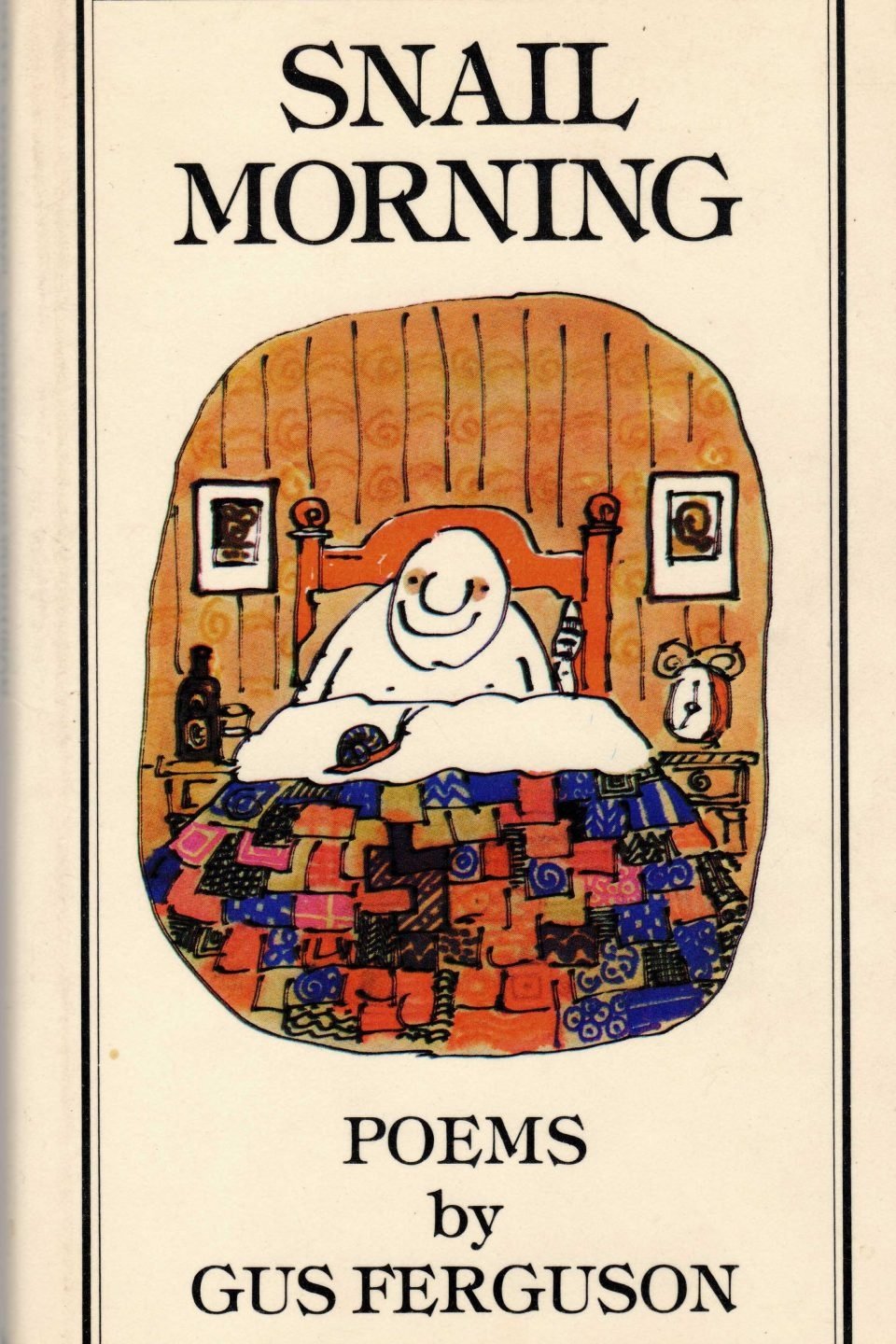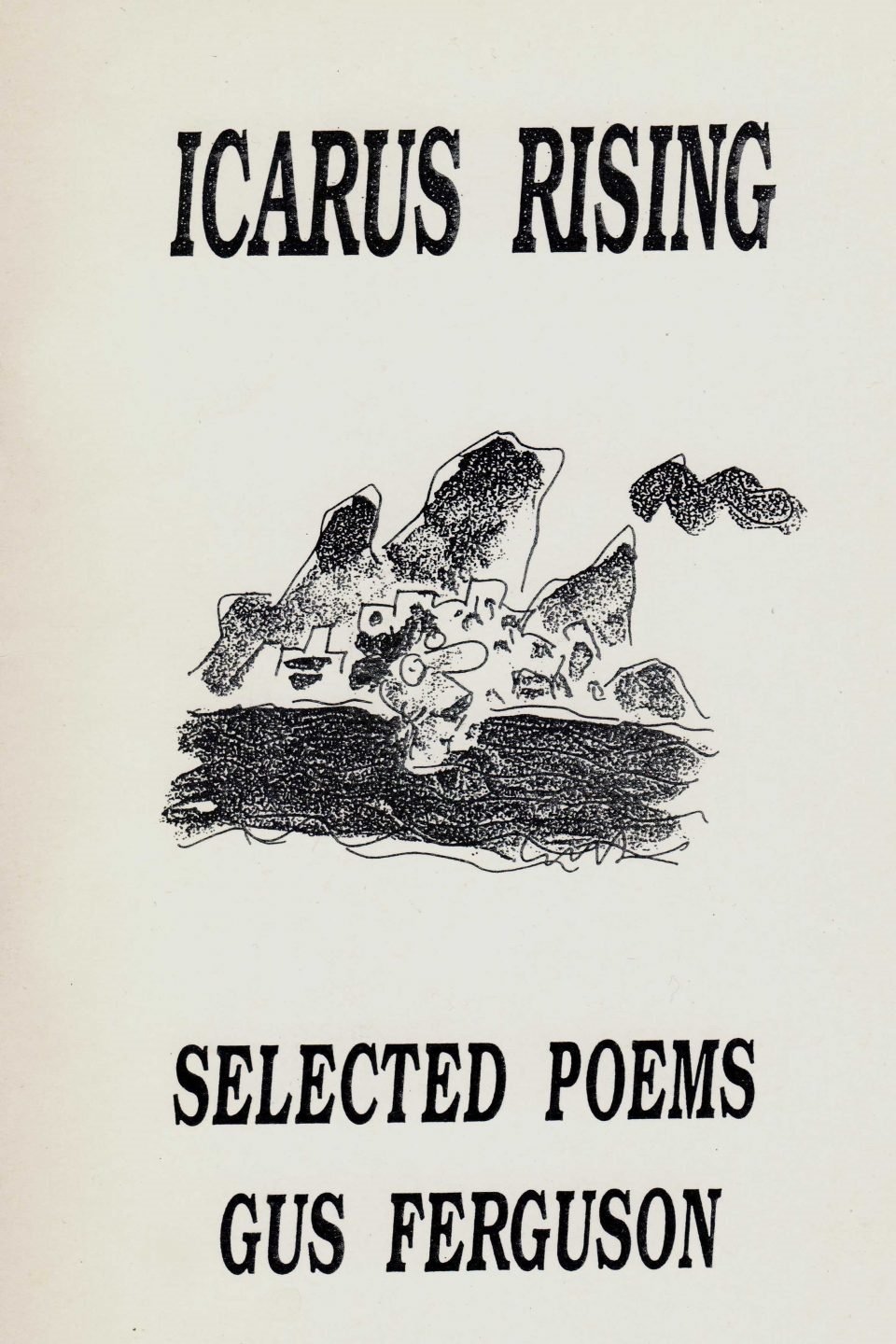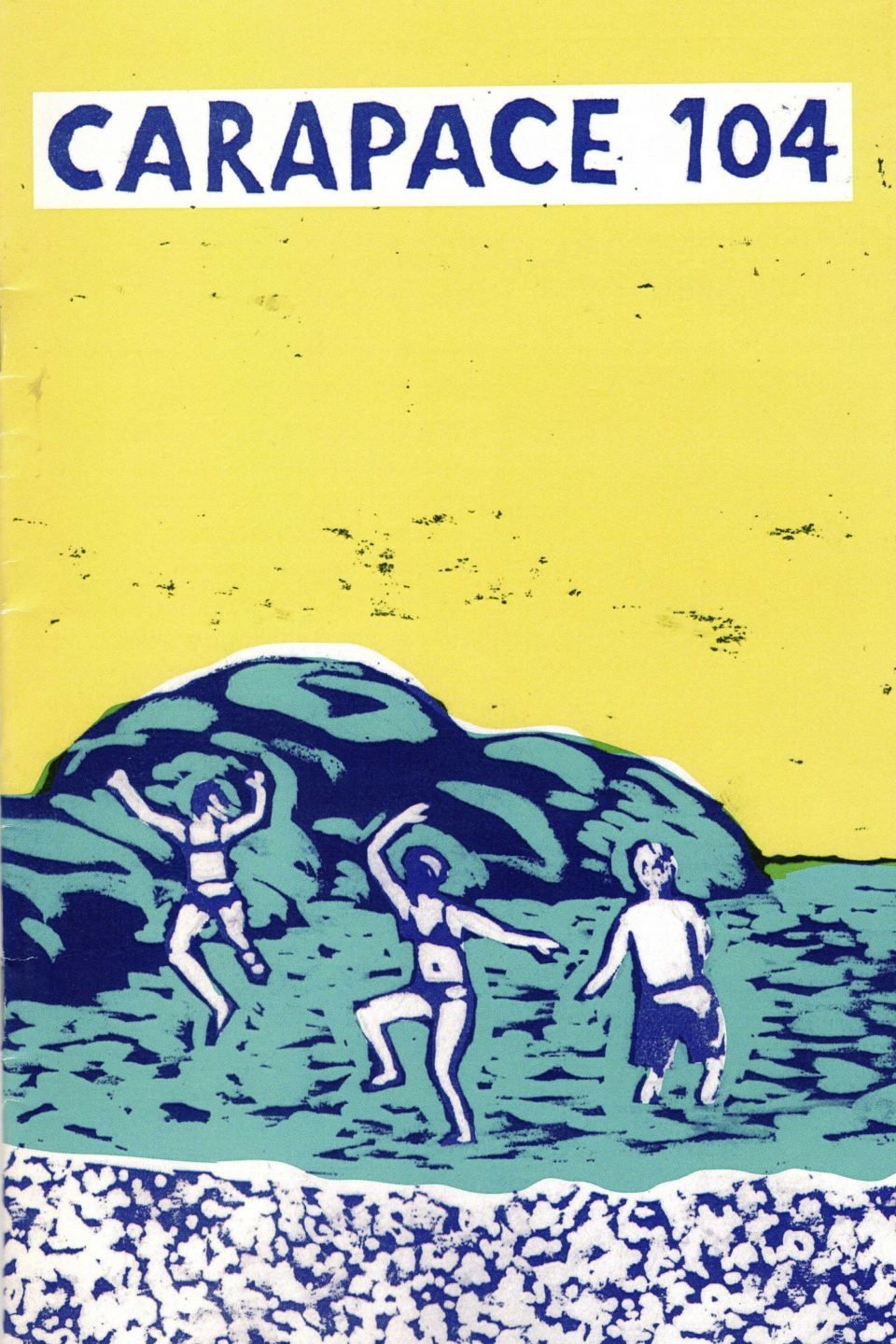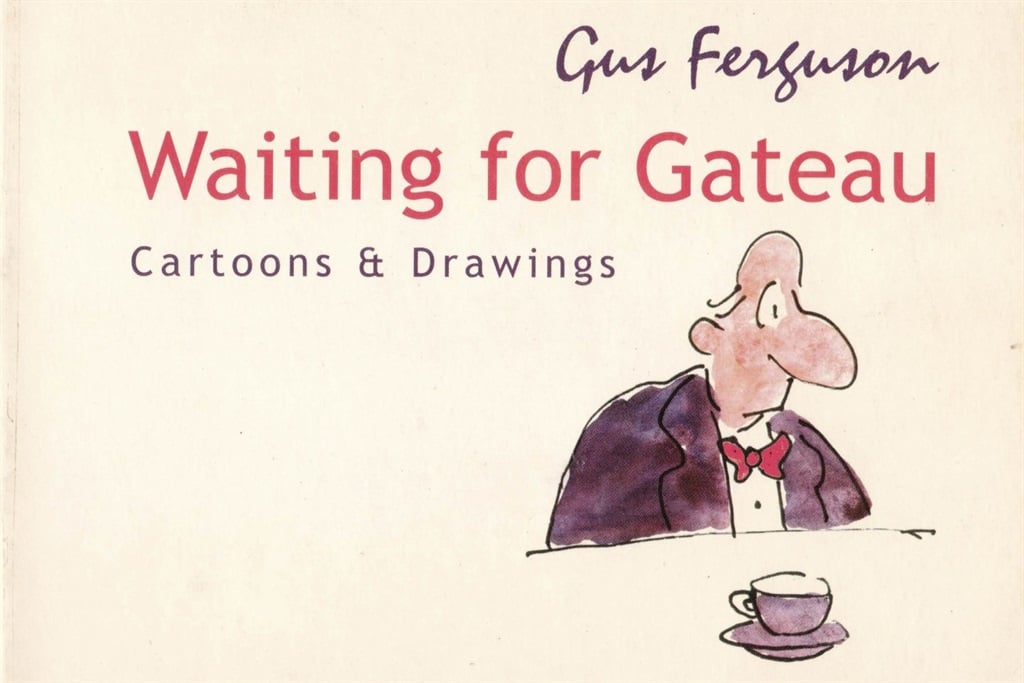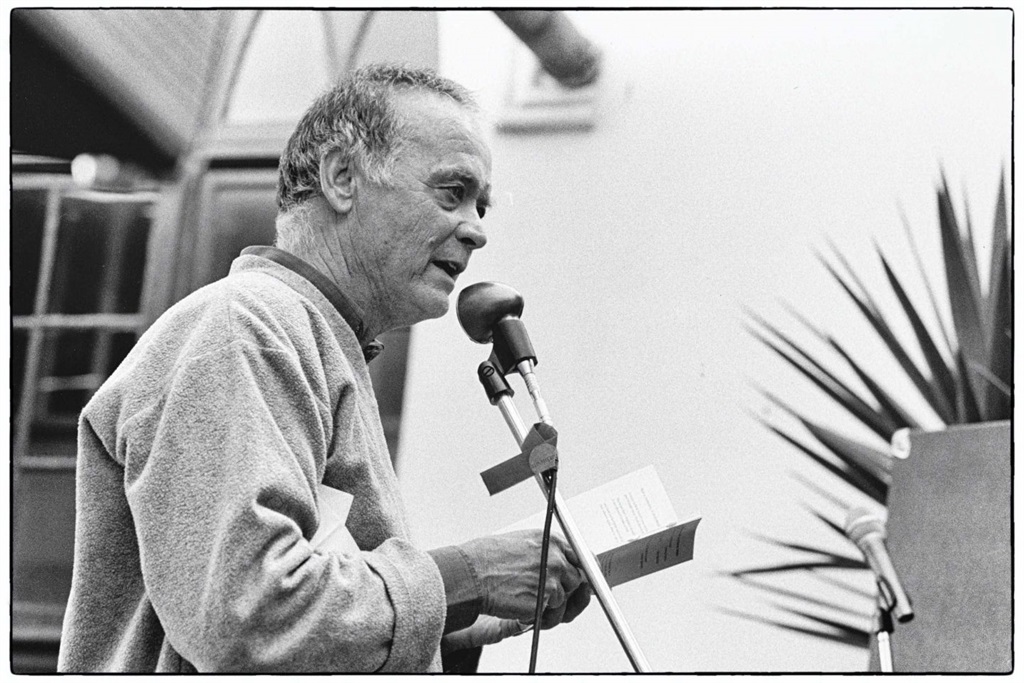
- A pharmacist by profession, Gus Ferguson is remembered as a poet, cartoonist and publisher.
- He helped create a climate in which home-publishing ventures were possible.
- In this way, he was a mentor who ushered not only poetry into the world, but also the possibilities and realisation of small publishing ventures.
I can’t remember how I first heard about the late Gus Ferguson, or got hold of his work number at the Pharmaceutical Society of South Africa in Cape Town. I had no idea that he, a pharmacist by profession, was a director there. As an aspiring poet, with two published poems and eager to get a full collection out, I had assumed the number was for the poetry publisher Snailpress. This was mid-1993.
Far from being furious about my calling him at his employer, Gus immediately sounded warm and friendly. He explained that Snailpress was a small, home-publishing venture and that he already had several books in the pipeline. However, he mentioned that he did publish a small poetry magazine called Slugnews.
“What news?” I asked him, convinced I had misheard.
“Slugnews,” he replied, “as in ‘snail’. The slimy things you find in the garden. Let me send you a copy and you can go through it. If you are comfortable with your work appearing in there, then feel free to send me poems – no more than five. It’s a bit of a maverick affair. You’ll see when you receive it.”
A few days later I received an issue of Slugnews, a combination of “poems, graphics, and molluscana”. It had a rough, cut-and-paste feel and featured poems, drawings and news clippings – some of them reviews of Snailpress titles, some of them about snails.
And so it began: my introduction to the world of Gus Ferguson, South African poet, cartoonist and publisher.
Small but encouraging
Our initial conversation had already revealed some sterling qualities: a sense of humour, which sometimes could be a bit on the dark side, as well as generosity and humility. Gus had started Snailpress with the money he had received for a poetry prize, and his first title was by his friend Sue Clark. By 1993, he had already published about 20 titles, including collections by Walter Saunders, Mzi Mahola, Karen Press, Ken Barris, Jacques Prevert, Keith Gottschalk, Ian Tromp and Tatamkhulu Afrika, among others.
Gus used to say that he didn’t have any particular preference about the sort of poetry he published – if he liked it, he would publish it. “You can even send me a poem about farting on a train,” he once told me. Gus’s own poetic voice was, of course, light-hearted, but it could also be philosophical and sometimes even disquieting.
As promised, Gus published several of my poems in the next few issues of Slugnews. I felt I was on a roll until early the following year when he announced he was ending Slugnews. “It’s becoming too much,” he said. He ran all his ventures from his home.
I was crestfallen but not for long. Motivated by Gus’ example, I planned to start a poetry journal. Gus even ran a (free) advert for it in the last issue of Slugnews. Once again, his generosity shone through, even though it must have been clear to him that my planned magazine didn’t stand a chance of getting off the ground.
Along with motivation, Gus gave me some tips on how to deal with poets. “Whatever you do,” he warned, “don’t give out your telephone number, and definitely not your home telephone number. I’ve been woken up at two in the morning with someone yelling down the line, ‘Why won’t you publish my poems?’”
Through his work, Gus demonstrated that a publishing press need not be a big operation. Poetry could be published simply and cheaply if you were prepared to forget about the gloss and just get the work out there. Roy Blumenthal had already started his Barefoot Press free poetry pamphlets in Johannesburg, and I was ready to follow. And so Dye Hard Press was born.
Mentor of possibilities
The mid-1990s saw several poetry publishing ventures appear in South Africa. Some of them were glossy but others were simple jobs, with photostatted pages and stapled spines. And while not all of them had been influenced by Slugnews, I feel Gus had helped to create the climate in which such home-publishing ventures were possible. In this way, he was a mentor who ushered not only poetry into the world, but also the possibilities and realisation of small publishing ventures.
In fact, Gus himself couldn’t resist the urge to leap into publishing again and launched his poetry journal Carapace, which was to run to 104 issues. Throughout its run, Carapace, which appeared in an A5 format with a stapled spine, published an enormous variety of poets, including Mxolisi Nyezwa, Gail Dendy, Finuala Dowling, Arja Salafranca, Stephen Symons, Kerry Hammerton, David wa Maahlamela, Fiona Zerbst, Moira Lovell and Basil du Toit.
There were also some special editions of Carapace – there was one devoted to Afrikaans poetry and another to poetry by Indian women. And around the same time, while Snailpress titles continued to appear, Gus started Firfield Press.
True to his humble spirit, he allowed me to publish a selection of his poems and drawings titled Icarus Rising in 1994. Most of the poems in this selection came from his first three collections, Snail Morning, Doggerel Day and Carpe Diem, but I also included a handful of “new poems”, which had been selected from two “informal” chapbooks that he had recently published: An Alphabet of Small Poems and Willow on Prozac.
And throughout the 1990s the warm friendship continued, as did the book exchanges and telephone calls. And Christmas cards too. Knowing my devotion to surrealism, he once sent me a card wishing me “a surreal Christmas and a dada new year”. Another time, when he had received a copy of a small poetry anthology I’d published called Electric Juice, he phoned me and without even a greeting, said: “My God, this is beautiful! A truly beautiful production.”
Another time he told me: “In publishing, you can never please everyone. Whatever you do will never be good enough. The left wing will attack you and the right wing will attack you – you’ll never win.”
Different worlds
Indeed, despite the praise that was so often deservedly showered on Gus, he was not free from criticism. After all, throughout the turbulent 1980s and early 1990s, through the final dark years of apartheid, Gus had been writing humorous poems in traditional rhyming forms. Not a word said about the socioeconomic or political environment in which his poetry was being written. It was work that was light-hearted and safe.
In fact, by 2001, even though Gus had published a chapbook of mine, it was clear that we were in some ways from different poetic worlds. Still, we chatted warmly when we met a few years later at the launch of his second collection of cartoons, Waiting for Gateau. And then a year or so after that, he asked me to guest-edit Carapace 54, which would be illustrated with my drawings. While we drifted apart, there was no animosity. Perhaps I was also growing older, more experienced, and less dependent on his guidance.
But the book exchanges continued, and until Carapace folded in 2015 I always received a free copy. By this time, the Snailpress, Firfield Press and Carapace Poets imprints had long ceased. Gus had retired, but most, if not all, of the nearly 100 books he had published had been done while he was working full-time.
I last sent him Dye Hard Press books in 2013, and in 2014 I became editor of New Coin for three years. It was during those years that I heard Gus was already seriously ill with dementia, and for the next few years it was a matter of him having good days and bad days.
Gus passed in December 2020. In my editorial for Carapace 54 I had written: “I take my hat off to Gus for continuing to be an example to many of us throughout the years, and hopefully to future home publishers to come.” And my hat will be forever off to him
This article was originally published by New Frame.




 Publications
Publications
 Partners
Partners





